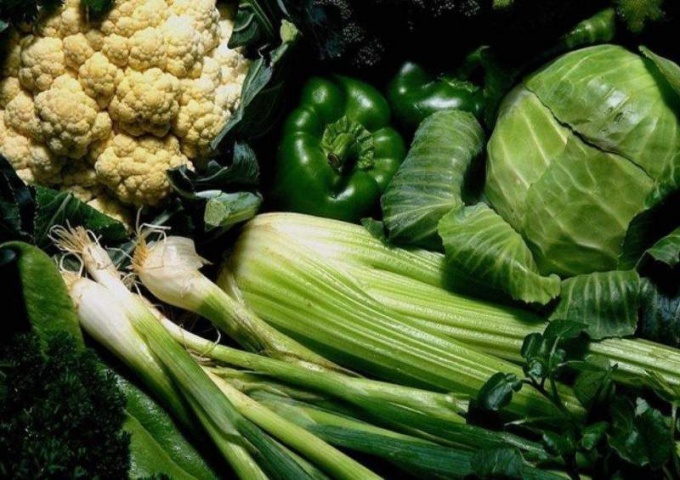Vitamin K plays an important role in the formation of prothrombin , a substance responsible for the blood clotting mechanism. It also stimulates muscle activity, normalizes motor activity of the gastrointestinal tract, regulates the kidneys, contributes to the normal metabolism of bones, connective tissue and prevents osteoporosis.
Vitamin K exists in different forms. In particular, K1, or phylloquinone, found in plants, K2 - menechino – is synthesized in the small intestines of humans and enters the body with products of animal origin.
The best source of vitamin K are green vegetables. So, Kale contains up to 500 mg of phylloquinone per 100 g, spinach – 350 µg, broccoli (220 mcg, watercress salad – 200 mcg. Also rich in vitamin K nettle leaves, sorrel, asparagus, green tomatoes, rose hips, green tea, cereals (wheat, rye, oats), walnuts.
A much smaller number of vitamin K present in foods of animal origin. In this segment suppliers, best – pork liver, milk, eggs (yolks), butter, cheese. Very low content is found in beef, pork, ham, cow's milk.
Because vitamin K refers to fat-soluble, it is digested better when consumed containing foods with fats, such as vegetable oil. At thermal processing vitamin K is partially destroyed, in addition, it is pernicious effect of different acids (citric, acetic, etc.).
The daily requirement for vitamin K is 1 mcg per 1 kg of body weight: for example, if you weight 70 kg, require 70 micrograms of vitamin K per day. As a rule, when the usual food is covered by this rule with a vengeance, so the beriberi or hypovitaminosis K, associated with the lack of phylloquinone and mankinen in the diet, is extremely rare. The exception is cases prolonged use of antibiotics and other drugs that cause dietary restrictions and eat certain foods.
Feature of vitamin K is that even in large doses, it is absolutely not toxic and does not cause adverse effects to the body. On the contrary, it is very useful for proper blood formation, especially in patients in the postoperative period, postpartum women and newborns.
